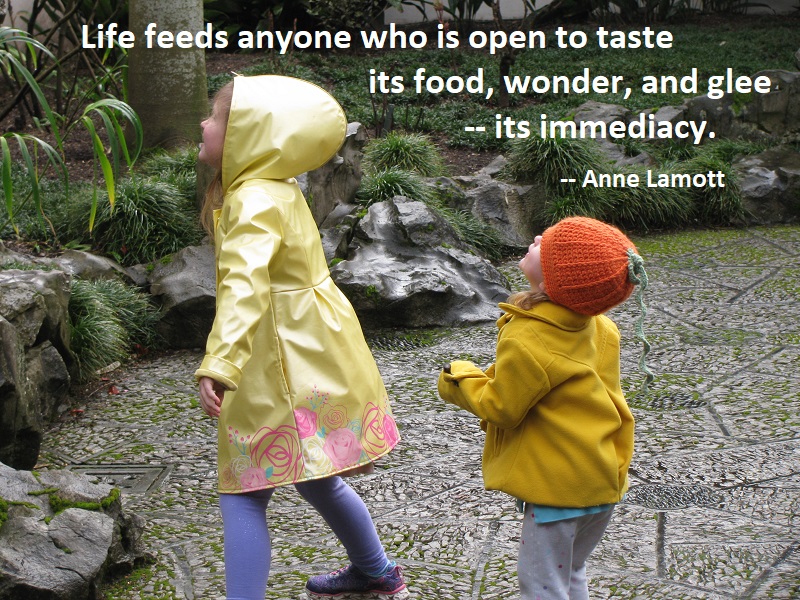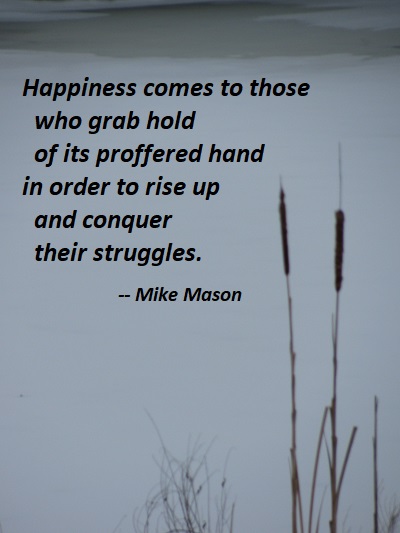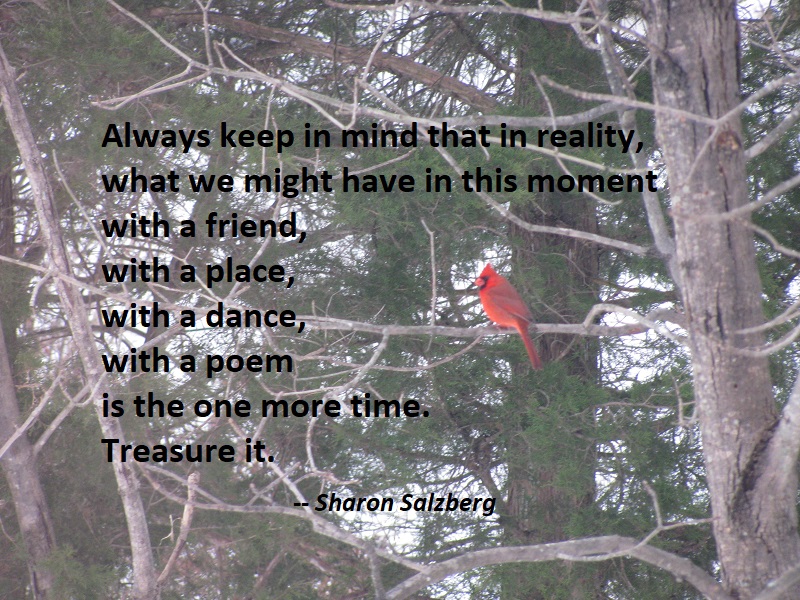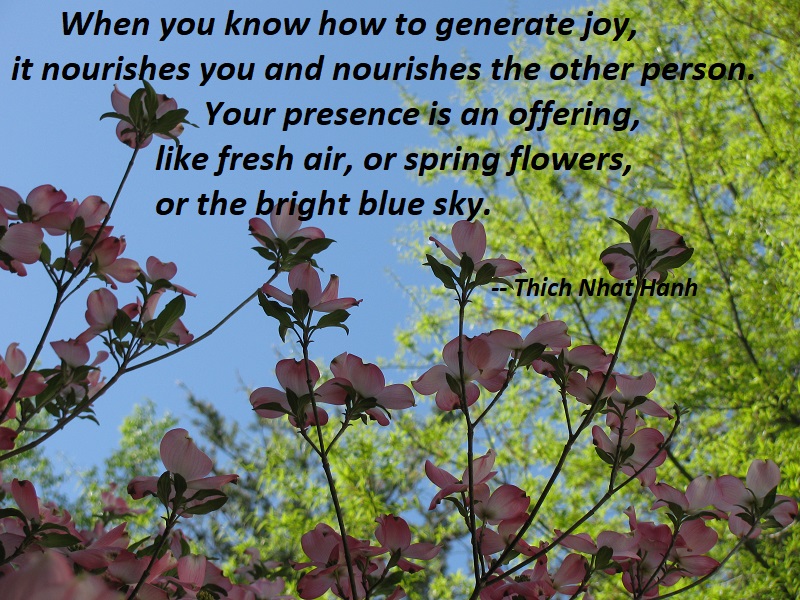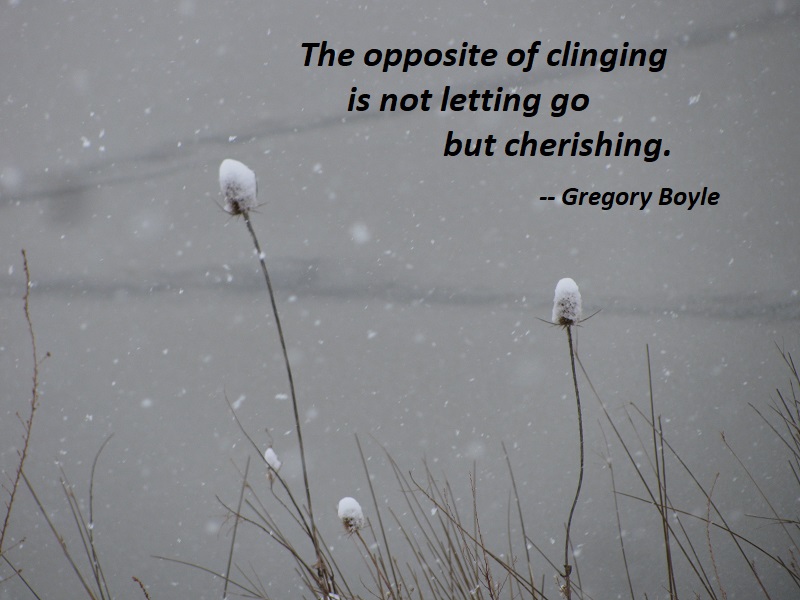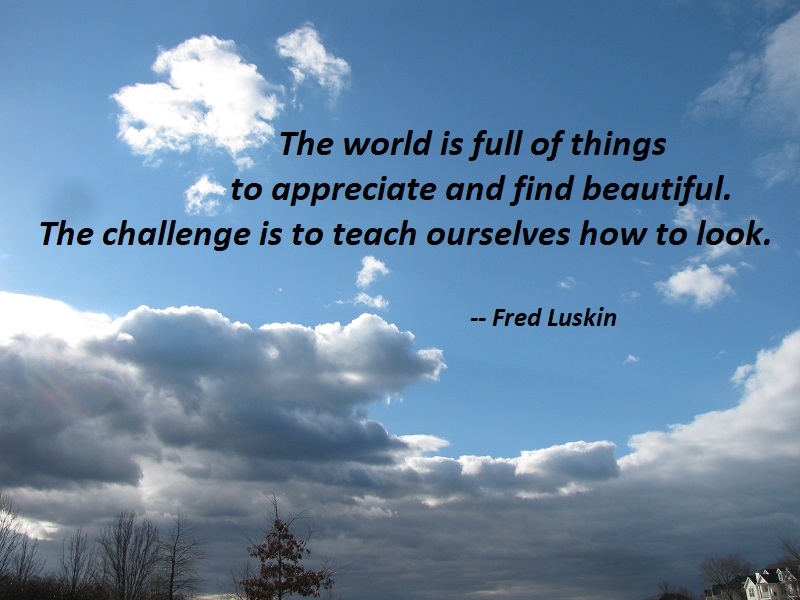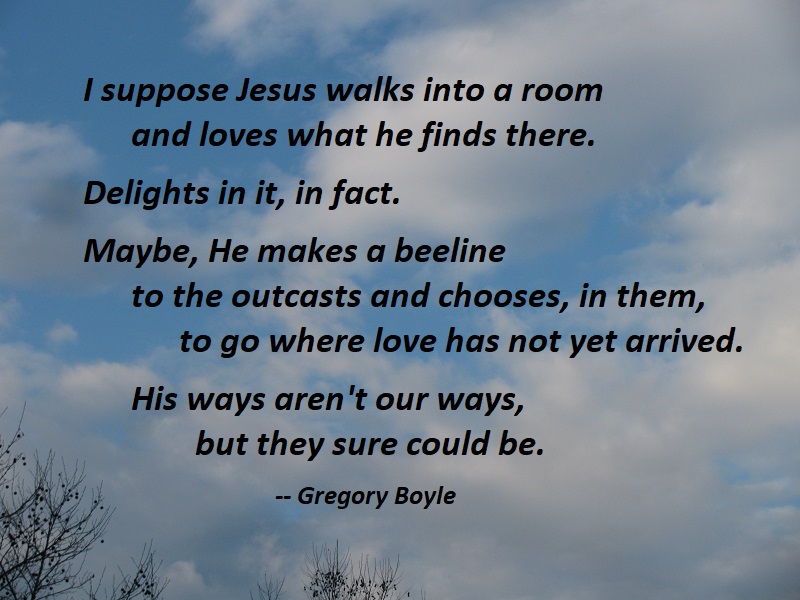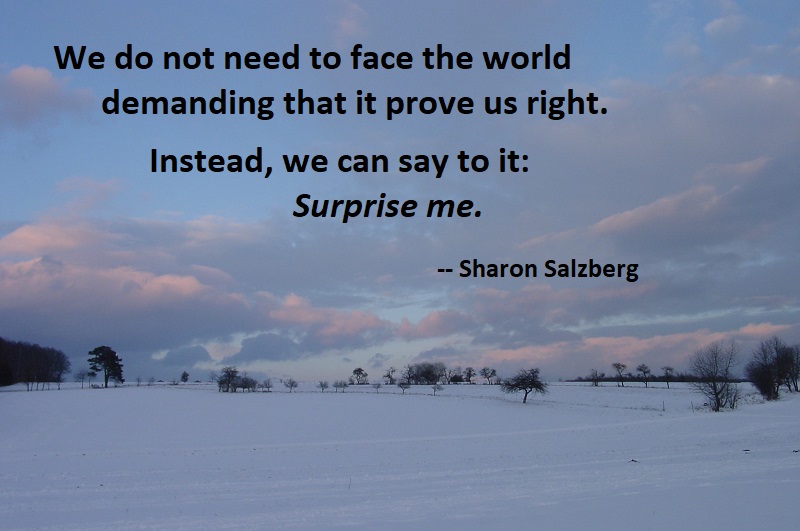Duty to Delight
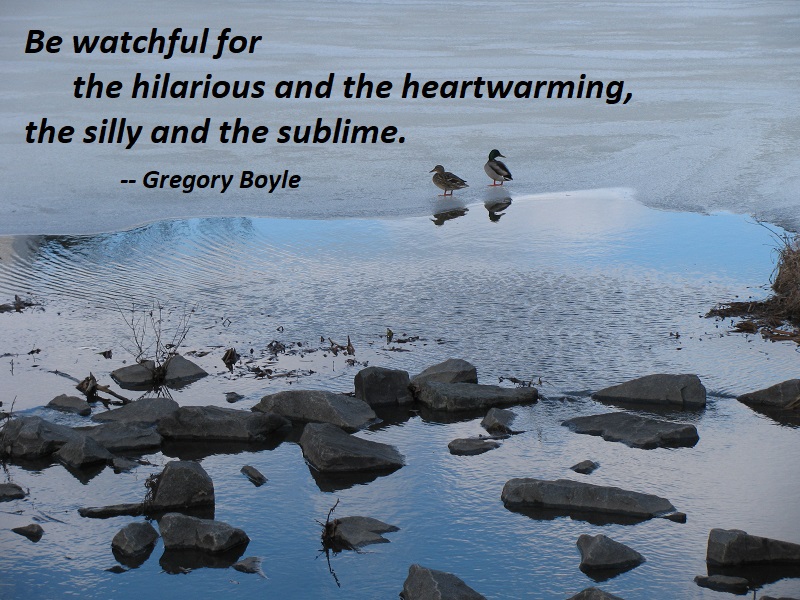
Dorothy Day loved to quote Ruskin, who urged us all to the “Duty to Delight.” It was an admonition, really, to be watchful for the hilarious and the heartwarming, the silly and the sublime. This way will not pass again, and so there is a duty to be mindful of that which delights and keeps joy at the center, distilled from all that happens to us in a day.
— Gregory Boyle, Tattoos on the Heart, p. 148
Photo: South Riding, Virginia, January 29, 2016
